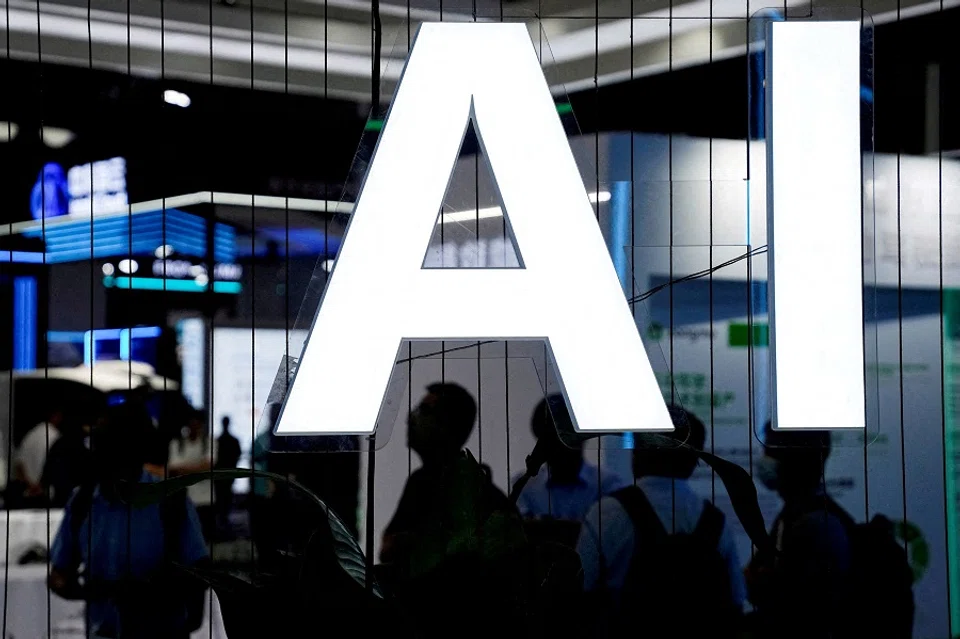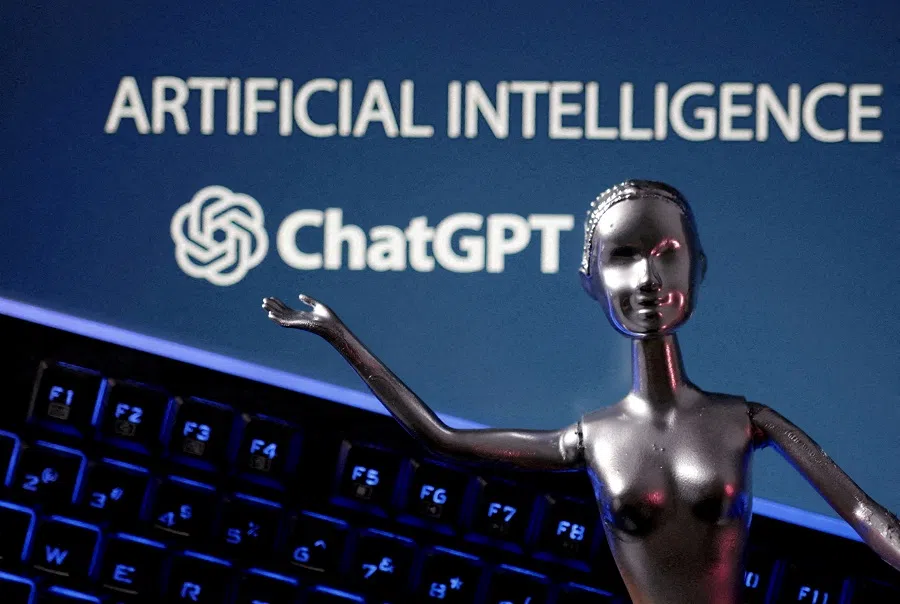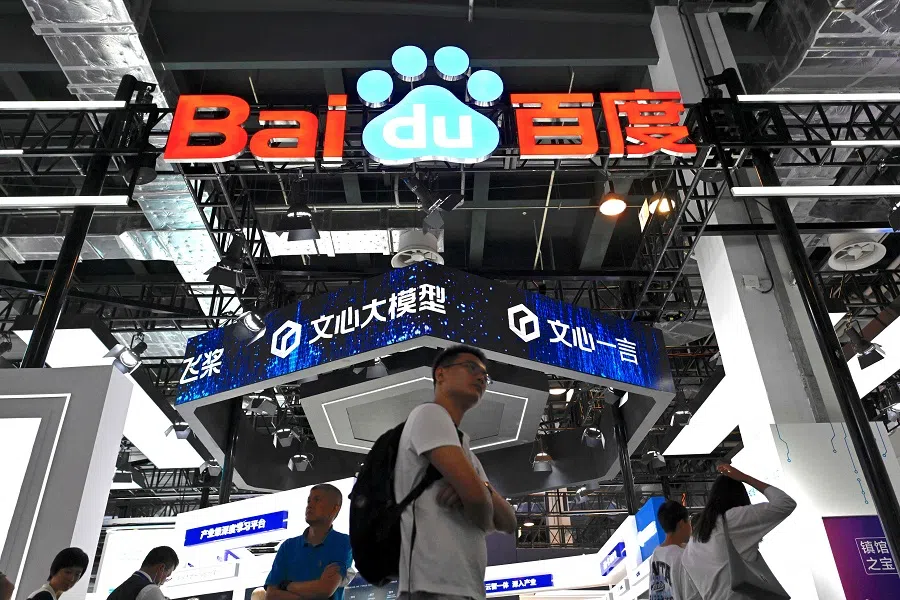China's ambiguous attitude towards generative AI
China put forth a draft Degree Law recently that includes harsh consequences for degree holders who use artificial intelligence tools to ghostwrite their dissertations. These aggressive measures reflect a conundrum that the country's academia and wider community finds themselves in: how can China balance between the desire for technological progress and the fear of losing its identity and autonomy?

On 28 August in Beijing, a draft Degree Law was submitted to the Fifth Session of the Standing Committee of the 14th National People's Congress for a preliminary review. Under the proposed legislation, using artificial intelligence (AI) tools to ghostwrite dissertations could result in the revocation of academic credentials. This is the first time that China has officially tried to ban the use of generative AI technology in the education sector.
Compared to the West, China's measures are ahead of its time, but the draft legislation reflects the immediacy of the issue; that is, amid a milieu of weak academic discourse, AI is challenging China's academic authority, and the Chinese government has to tackle the problem in the absence of advanced technical know-how and necessary information.
China's attitude towards generative AI
Recent advances in natural language processing have produced powerful generative AI models, such as GPT-4, BERT and ClaudIA. These models can create various texts that are grammatically correct, logically coherent, creative and persuasive. However, they also pose challenges and risks to academic research and education, such as academic misconduct, declining writing and thinking skills, and difficulty in evaluating knowledge sources. These problems are common in both China and the West.
...if China depends on foreign technologies and products, it faces the risk of being "technologically colonised" by the foreign companies that own them.
China's attitude toward the use of generative AI in academic settings is not just about the technology itself, but also reflects the technological competition between China and the West - whether to block or embrace the challenge. At least for now, China seems to be in a disadvantageous position in this competition.
On the one hand, China lags behind Western countries, especially the US, in the field of generative AI, without any comparable advanced Chinese models and products of its own. This makes the Chinese government wary that if China depends on foreign technologies and products, it faces the risk of being "technologically colonised" by the foreign companies that own them.

On the other hand, China is trying to leverage its latecomer status to gain control over AI technologies and products. If China isolates itself from the global market and scientific community, it may miss these opportunities and fall further behind. Therefore, China faces a difficult challenge: how to balance between vigilance against and a desire for generative AI? How should it protect its core interests while embracing global innovation?
The impossible balancing act
These questions have previously been raised in China's process of learning from the West, and the way to deal with them has been to assimilate Western technology as much as possible, and to develop better technology on the basis of Western technology, so as to compete with the West and even occupy the market.
China's own models cannot advance quickly if it prohibits the use of Western models, since this will have a detrimental effect on the local knowledge base that China uses to construct its own models.
For instance, while China's advancements in high-speed rail grew out of importing technology from Japan, France, Germany and Canada, it is now exporting high-speed rail technology to the West. However, the development of generative AI models may have a different trajectory.
If China restricts the use of Western generative AI models, it may not be able to produce better models itself. This is because besides disparities in chip technology and computing power, China's restrictions on knowledge dissemination are the primary cause of the technological gap between the country and the West. And more stringent limitations on academic knowledge are making matters worse.
In other words, China's own models cannot advance quickly if it prohibits the use of Western models, since this will have a detrimental effect on the local knowledge base that China uses to construct its own models. On the other hand, allowing the use of Western models could potentially hinder the emergence of China's own language models, increasing Western hegemony over China's language models.
Declining influence of Chinese language?
China's attitude towards generative AI in academia is therefore ambiguous.
On the one hand, China has a relatively weak academic influence compared to the West, and the use of AI may expand China's influence. However, at the moment, English is the dominant language of academic research. Most top journals and conferences use English as a medium of communication, and mainstream scientific platforms and digital resources are also based on English data. In contrast, Chinese academic resources are severely lacking. There are few high-quality journals and conferences that use the Chinese language.

Generative AI lowers the threshold of language expression, which may facilitate academic exchange and innovation. But if China directly uses generative AI models trained with English data, it may reinforce the disadvantage of Chinese content, and lead to more Chinese scholars publishing papers in English. This will further erode the status and influence of Chinese as an academic language in the long run.
If China's model incorporates a lot of Western knowledge, then obviously the proportion of Chinese thought may decline.
Declining influence of Chinese thought?
Language is just the tip of the iceberg in China's relationship with AI. Whether AI can compensate for or exacerbate China's shortcomings in academic discourse is still up for debate. For now, AI may help Chinese scholars disseminate their voices more widely, but it may also overwhelm Chinese students with Western knowledge made available through AI.
...unless it allows China's intellectuals to join this competition for creating the AI knowledge base and resources, China will never truly achieve the goal of "opening up" in the education sector.
An AI model's richness of information is one of its most important features, and it needs to be founded on a rather open mindset. If China's model incorporates a lot of Western knowledge, then obviously the proportion of Chinese thought may decline. Chinese academic administrators have long been concerned about the Western ideas that AI technology may propagate.
In this respect, perhaps the Chinese government should also realise that unless it allows China's intellectuals to join this competition for creating the AI knowledge base and resources, China will never truly achieve the goal of "opening up" in the education sector.
But this road is not easy to take. It requires not only technical skills but also political will. China's attitude towards generative AI technology is also related to its confidence in its own system and culture, similar to the attitude of not relying on Google.
There is no doubt that Google is a powerful search engine that can access a lot of information, but China has blocked Google and developed its own search engines that comply with its regulations and values, such as Baidu and Sogou. But this also means that China has been disconnected from some valuable sources of knowledge and innovation that Google provides. How can China balance the desire for technological progress with the fear of losing its identity and autonomy? This is a complex and delicate issue that requires careful consideration.
The path forward
Therefore, the Ministry of Education's ban should be seen as a preliminary measure, not a final solution. The regulation may have some positive effects, such as curbing blatant abuse in the use of generative AI and raising awareness among educators and students. But it may also have some negative consequences, such as stifling creativity and innovation.
The Chinese academic community needs to develop a more nuanced and comprehensive approach to deal with the challenges of generative AI in changing times. They need to make a democratic decision with the Chinese people about how to embrace the AI world, which could offer much hope but also much inequality.






